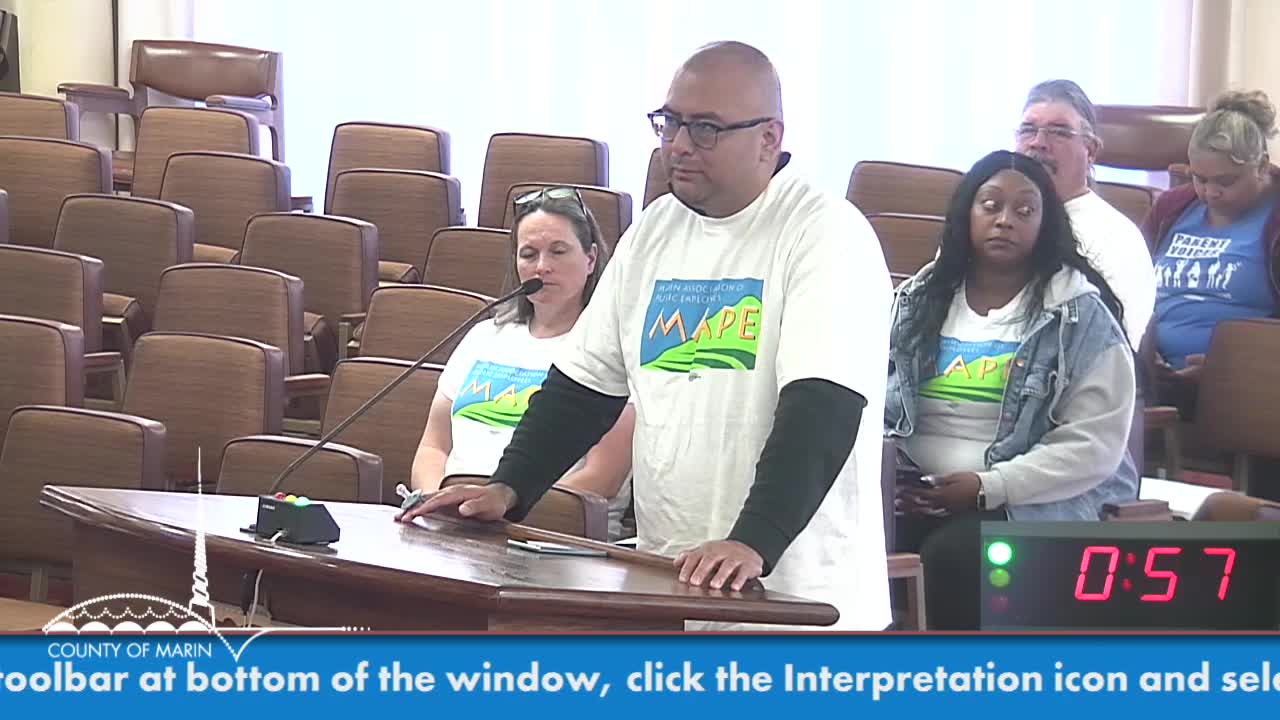Marin Child Care Council reports outcomes from ARPA-funded teacher retention pilot; board accepts report
Get AI-powered insights, summaries, and transcripts
Subscribe
Summary
Marin Child Care Council briefed supervisors on a $1 million ARPA-funded early childhood educator retention pilot (LIFT) that provided stipends and case-management supports; the board accepted the report and staff noted program lessons for future workforce supports.
The Marin County Board of Supervisors accepted an informational report on April 22 from the Marin Child Care Council summarizing a three-year, American Rescue Plan Act (ARPA)-funded teacher retention pilot aimed at stabilizing the early childhood education workforce.
Deputy County Executive Lynn Walsh and Marin Child Care Council leaders outlined the program’s design and outcomes. The county originally allocated $1 million in ARPA funds in 2021 to strengthen childcare; funding was deployed in two phases and extended through June 2025 to support programs including the teacher retention project known locally as the LIFT guaranteed-income pilot for early childhood educators.
Kelsey Lombardi, manager for the LIFT program, described a combined cash-plus-case-management model. The pilot provided guaranteed, no-strings stipends to enrolled educators and monthly one-on-one support focused on participants’ individual goals. Lombardi reported 22 initial participants, of whom 17 remained in the program in the most recent months; four left the early childhood field and one moved out of county. She said 71 percent of participants received a raise or promotion during the project, and described outcomes such as improved housing stability, higher education completion, reduced debt and improved transportation and family reunification opportunities.
Program leaders emphasized that the pilot’s case-management component — individualized coaching, support to convert foreign credentials, and help securing transportation and childcare — was a key factor in maintaining participants in the workforce.
The presenters warned that state- and federal-level funding uncertainties could place strain on child-care providers. Adine (Adeen) Guidemore and Kelsey said the county’s system already faces capacity constraints: the council maintains a wait list of about 600 income-eligible children and noted that Marin’s Head Start program serves about 370 children; presenters said potential reductions at the federal level could have a “domino effect” on local capacity.
Supervisor Susan Lukin moved to accept the report; Supervisor Milton Peters seconded. The board approved the acceptance.
Why it matters: Marin’s childcare system is a mixed delivery model of private and publicly funded providers. The LIFT pilot suggests targeted cash supports plus case-management can help retain educators and translate into higher qualifications and raises. County staff and the Child Care Council urged continued local advocacy should federal Head Start or other early-childhood funds be reduced.
What’s next: The presenters offered to share program lessons with other counties and noted that other jurisdictions (Contra Costa, Sonoma) have sought information as they consider similar approaches. County staff said they will continue community planning and return with any requests for budget decisions or program design changes as needed.
